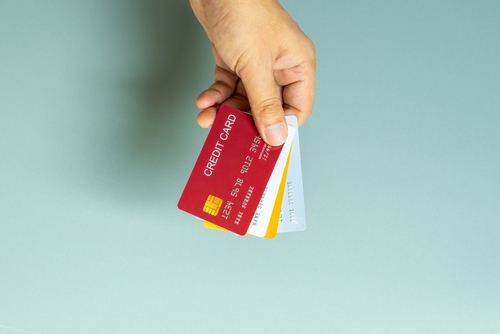You’ve decided to get your business idea moving and your start-up is on its way towards growth. As you explore financing options, one common path is opening a credit card for your business. However, start-ups often lack the credit history of established companies, making access to credit more challenging.
At Remitly, we’re committed to helping new business owners get started and manage their finances wisely. In this guide, you’ll learn how to navigate credit card options even with limited or no business credit history.
Understanding Business Credit Cards for Start-ups
What Are Startup Business Credit Cards?
Business credit cards are issued to businesses rather than individuals, and are accessible to a range of entrepreneurs—from independent contractors to small business owners. These cards often include rewards programs and perks, but like any credit product, responsible usage is key to avoiding costly interest or fees.
Cards geared toward start-ups may come with lower credit limits but can still deliver value through expense tracking and features like introductory interest-free periods.
Importance of Building Business Credit
Establishing business credit early improves your odds of qualifying for future loans with favorable terms, builds relationships with vendors, and lays the groundwork for long-term financial health. Without a solid credit profile, accessing funds may be more difficult, potentially delaying your start-up’s progress in the market.
How to Build Credit as a Start-up
One effective way to build credit is by responsibly using a business credit card. Additional strategies include:
- Opening a business bank account
- Applying for a DUNS number with Dun & Bradstreet
- Establishing tradelines with vendors
- Maintaining long-standing accounts in good standing
For more ideas, see this guide to building business credit.
Best Business Credit Cards for Start-ups With No Credit
What to Consider When Choosing a Card
- Define your goals: What will the card help you achieve in the short and long term?
- Track expenses: Understanding monthly spending helps determine the right credit limit.
- Evaluate perks: Pick rewards that align with your operations (e.g., travel points vs. cash back).
- Consider fees and interest: Match the fee structure to your business use case.
- Secured vs. unsecured: If your personal credit is limited, secured cards may be more accessible.
Explore further via Chase’s small business guide.
Top Five Picks for Start-up Credit Cards
Note: The following is for informational purposes only. Product features may change. Please consult the issuer for current terms.
- Capital One Spark Miles for Business: Travel-friendly rewards, $95 annual fee (waived year one), APR: 25.24%.
- Ink Business Preferred® Credit Card: Points convertible to cash back, APR: 20.24%–26.24%, $95 annual fee.
- Costco Anywhere Visa® by Citi: Cash back up to 4% on eligible purchases, no annual fee for Costco members, APR: 19.49%–27.49%.
- FairFigure Capital Card: No credit check required, EIN-based application, no annual fee or APR.
- First National Bank Business Edition® Secured Mastercard®: Accessible with low personal credit, $39 annual fee, 25.24% APR.
Applying for a Business Credit Card Without Credit
Step-by-Step Application Process
- Research: Prioritize cards that fit your credit profile and business needs.
- Check your credit history: Know your current credit status and consider timing if improvements are needed.
- Prepare documentation:
- Business name, address, and phone
- Legal structure and type
- EIN and/or SSN
- Number of employees
- Annual revenue
Reference Citi’s business credit card guide for more details.
Applying With an EIN
Using an EIN instead of a SSN can help keep personal and business finances separate, particularly if personal credit is limited. This approach may also reduce personal liability. Learn more from Ecredable and Nav.
Exploring No Personal Credit Check Options
- No-credit-check cards
- Secured credit cards, which require a deposit and typically have lower approval barriers
Benefits of Business Credit Cards for Start-ups
Establishing Business Credit
Business cards help create a credit profile, increasing eligibility for favorable leases, insurance rates, and loans as your score improves. Poor or short history can lead to higher costs or application rejections.
Managing Cash Flow and Expenses
Cards offer flexibility in cash flow by deferring payments. They also help build stability and separate personal and business expenses—critical for taxes, audits, and professionalism.
Key Takeaways
- Research thoroughly: Tailor your card choice to your specific business goals.
- Keep business separate: Use a business credit card to protect your personal finances.
- Start early: Building credit now opens up more opportunities later.
FAQs
Can I get a business credit card with no credit?
Possibly. Some cards require only a soft credit inquiry or offer EIN-only applications.
Can I use my EIN to get a credit card?
Yes. Several cards, like those from FairFigure, support EIN-based applications.
Can a new LLC get a business credit card?
Yes, although many will require a personal guarantee or strong personal credit.
What is the easiest business credit card to get?
Secured cards are generally more accessible and require a deposit to open.
